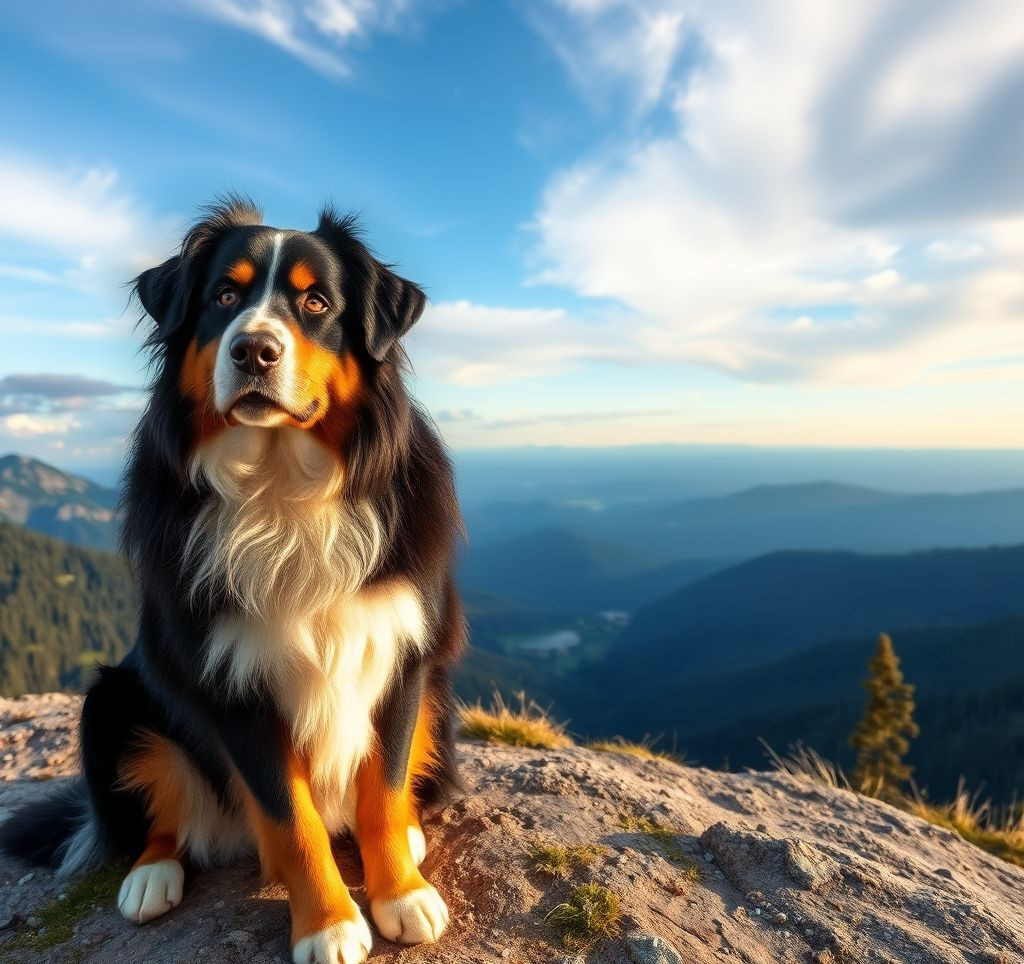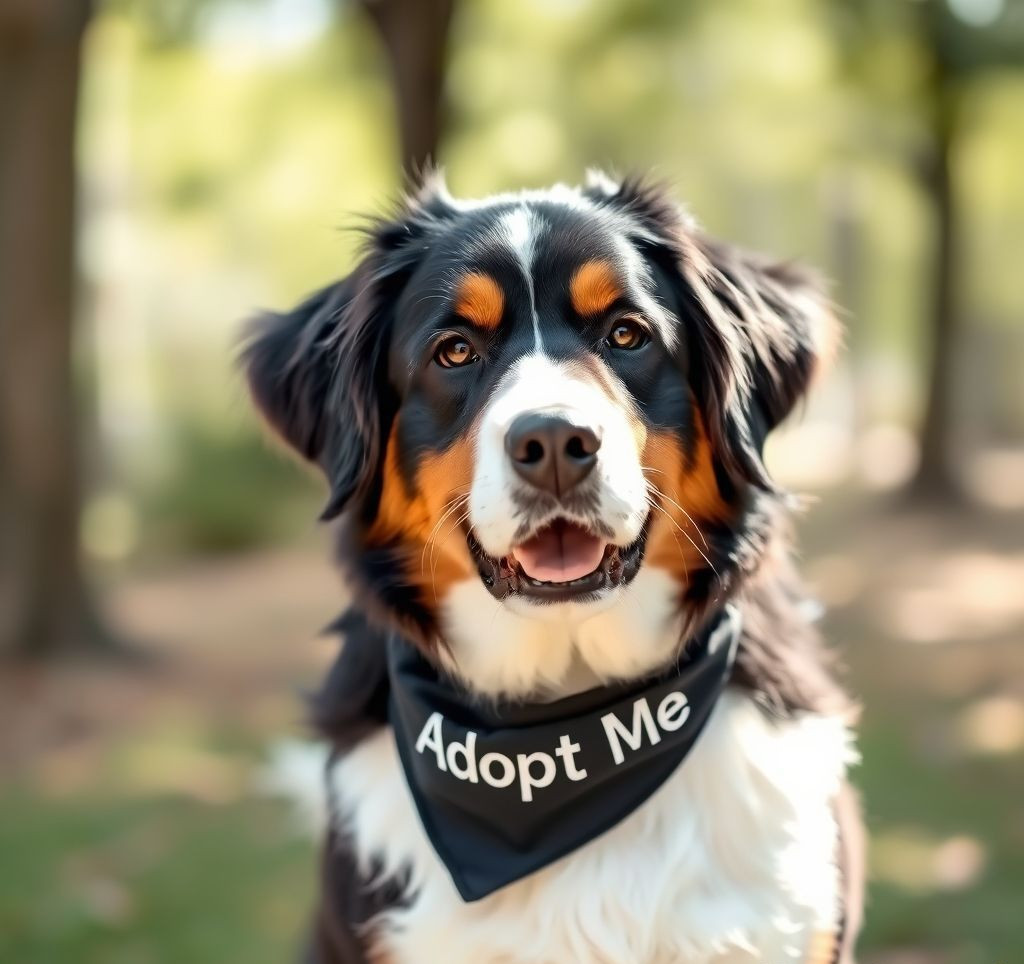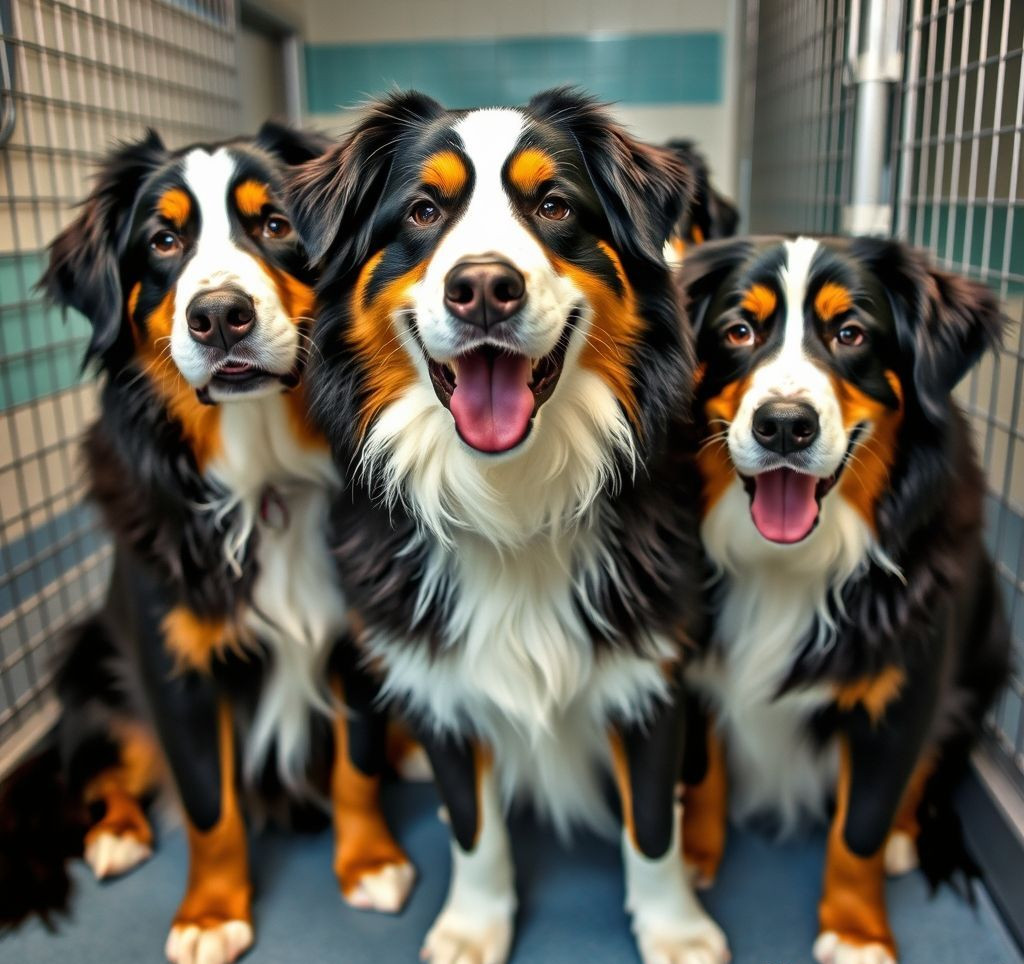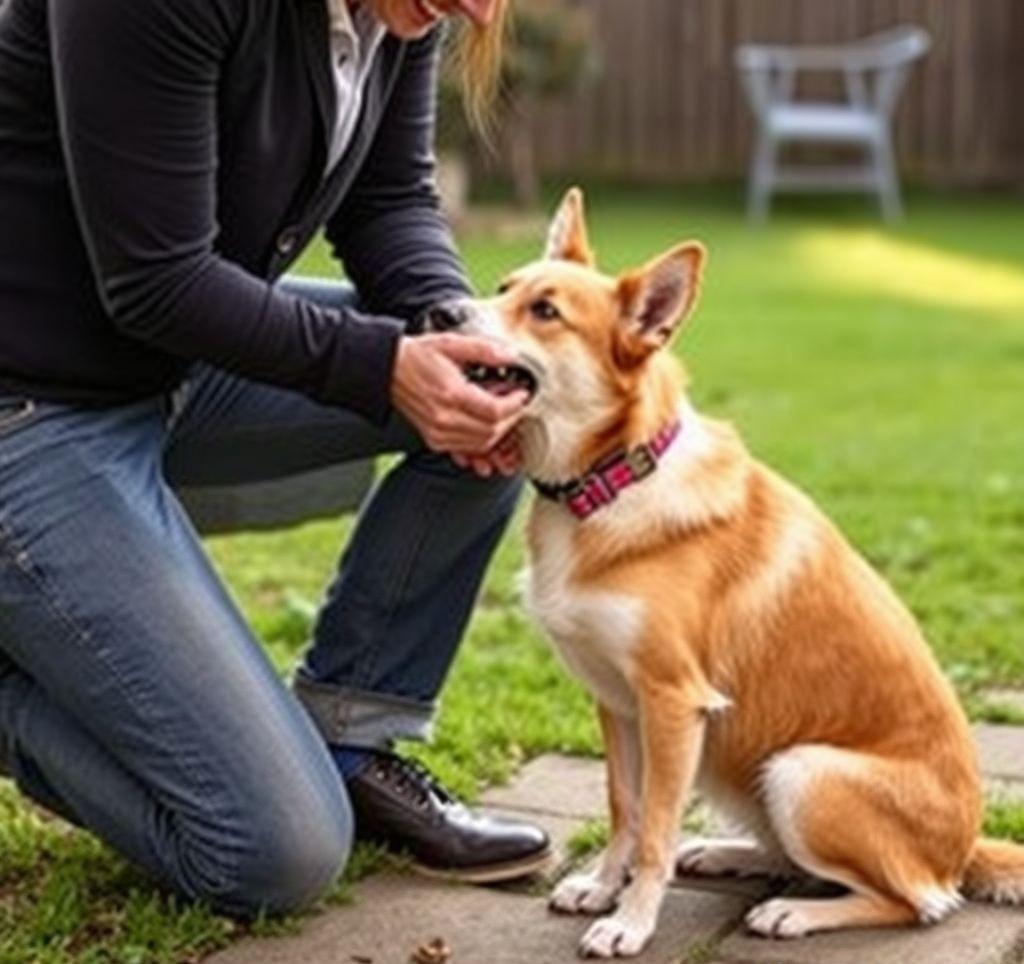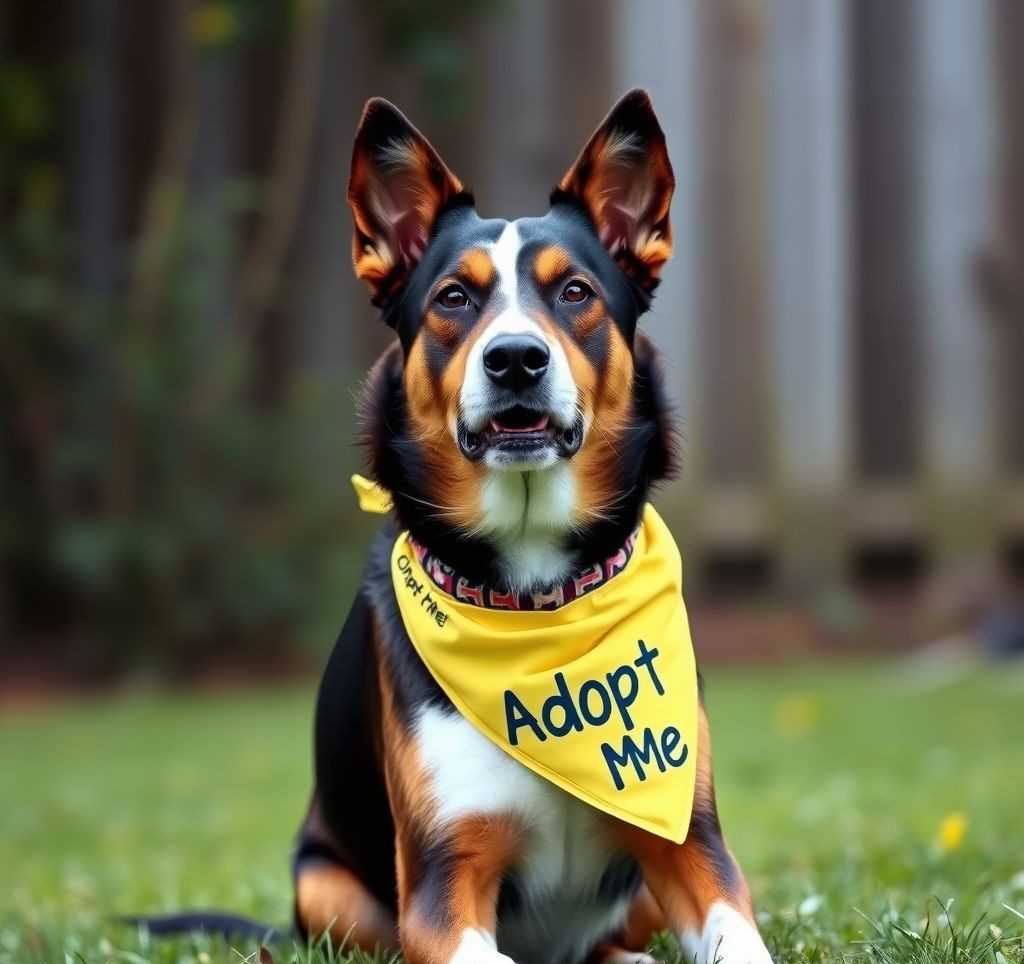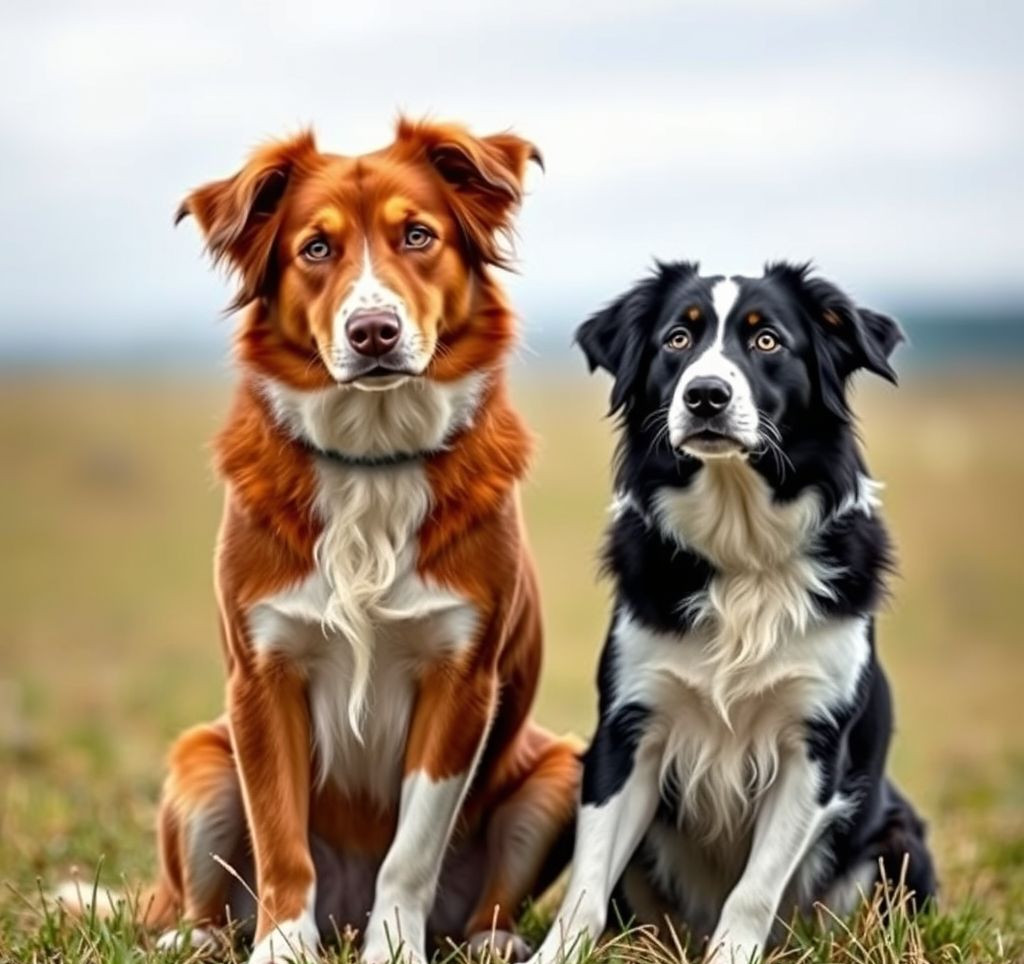Welcoming a Gentle Giant: Your Guide to Adopting a Bernese Mountain Dog
Embarking on the journey to adopt a Bernese Mountain Dog is an incredibly rewarding experience. These magnificent dogs, known for their striking tri-color coats and remarkably gentle demeanors, are often referred to as “gentle giants,” and for good reason. They possess a calm, affectionate nature that makes them wonderful family companions. If you’re considering bringing one of these loyal friends into your home, understanding their unique needs and how to navigate the adoption process is key. This guide is designed to help you find your perfect Bernese Mountain Dog through reputable rescue channels.
Why This Decision is So Rewarding
Choosing to adopt a Bernese Mountain Dog rather than purchasing can significantly impact the life of a deserving animal and enrich yours in countless ways. Here’s why this path is so beneficial:
- Giving a Second Chance: Many Bernese Mountain Dogs end up in rescue situations due to circumstances beyond their control, and adopting provides them with a loving, permanent home they deserve.
- Understanding the Breed: Adult dogs available for adoption often come with established personalities, making it easier to find a good match for your lifestyle and family dynamics.
- Cost-Effective: Adoption fees are typically much lower than purchasing from a breeder and often cover initial veterinary care, vaccinations, and spaying/neutering.
- Supporting Rescues: Your adoption supports organizations dedicated to the welfare of the breed, allowing them to continue their vital work.
Understanding the Bernese Mountain Dog
Before you adopt a Bernese Mountain Dog, it’s essential to appreciate their distinctive characteristics and care requirements. This understanding will ensure a harmonious and happy life together.
Bernese Mountain Dogs, affectionately known as “Berners,” originated in the Swiss Alps, where they were valued as all-around farm dogs. They were used for drafting, droving cattle, and guarding the homestead. This heritage contributes to their strong build and willingness to please.
- Temperament: Berners are known for their good-natured, calm, and affectionate disposition. They are typically patient with children and sociable with other pets when properly introduced.
- Size and Exercise: As large dogs, they require ample space. While not excessively hyperactive, they do need regular exercise, such as daily walks and opportunities for play, to maintain health and prevent boredom.
- Grooming Needs: Their beautiful, thick double coat requires regular brushing, ideally several times a week, to manage shedding and prevent matting.
- Health Considerations: Like many large breeds, Bernese Mountain Dogs can be prone to certain health issues, including hip and elbow dysplasia and certain types of cancer. Responsible rescue organizations will be transparent about any known health concerns.
Navigating the Path to Adoption
The process of finding and adopting a Bernese Mountain Dog involves several key steps, ensuring a responsi
ble and successful match.- Research Rescue Organizations: Start by identifying reputable Bernese Mountain Dog rescue organizations, both breed-specific and general animal shelters that may have Berners. Look for groups with strong community ties and positive reviews.
- Complete an Application: Most rescues require a detailed application that assesses your lifestyle, home environment, experience with dogs, and reasons for wanting to adopt. Be thorough and honest.
- Home Visit and Interview: Be prepared for a home visit from a rescue representative to ensure your living space is suitable. Interviews help the rescue understand your expectations and commitment.
- Meet Potential Dogs: Spend time interacting with the Bernese Mountain Dog you’re interested in. Observe their temperament and see how they respond to you. If you have other pets or children, arrange supervised introductions.
- Finalize the Adoption: Once a match is made, you’ll complete adoption paperwork and pay an adoption fee, which helps cover the rescue’s expenses.
A fascinating historical note is that Bernese Mountain Dogs were once nearly extinct in the early 20th century. Their resurgence is a testament to the dedication of enthusiasts and breeders who worked to preserve the breed.

Expert Tips for Welcoming Your New Companion
Bringing a Bernese Mountain Dog home is the beginning of a beautiful relationship. Here are some tips to ensure a smooth transition and a thriving life together.
- Patience is Key: Allow your new dog time to adjust to their new environment. Provide a quiet space where they can retreat, and introduce them gradually to new people, pets, and routines.
- Establish a Routine: Consistent feeding times, walk schedules, and bedtime routines can help your Bernese Mountain Dog feel secure and understand their new life.
- Positive Reinforcement Training: This breed responds very well to positive reinforcement methods. Enroll in obedience classes early to build a strong bond and establish good manners.
- Manage Their Health: Regular veterinary check-ups, a balanced diet, and appropriate exercise are crucial for managing the health of a large breed.
- Socialization: Continue to socialize your Bernese Mountain Dog with various people, places, and other well-behaved dogs to help them remain well-adjusted and confident.
“The Bernese Mountain Dog is a breed that thrives on companionship and gentle guidance. Their loyalty is unwavering, and they form deep bonds with their families.” – The AKC (American Kennel Club)
By approaching the adoption process with knowledge, patience, and love, you can open your heart and home to a Bernese Mountain Dog and experience the unparalleled joy they bring.
